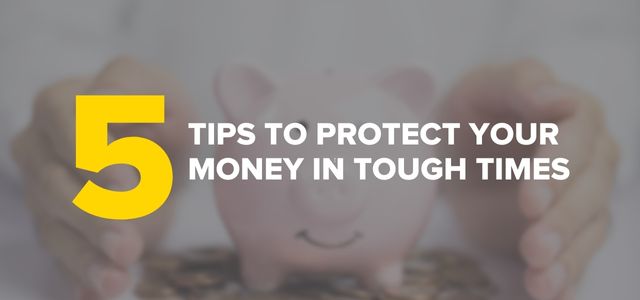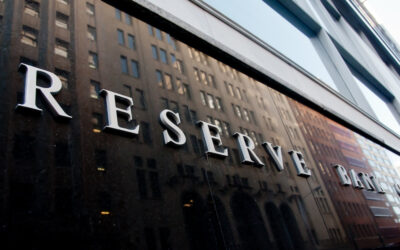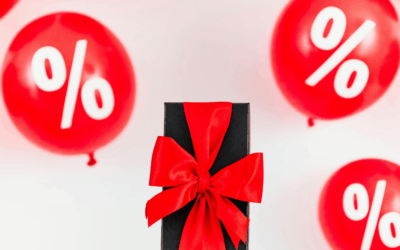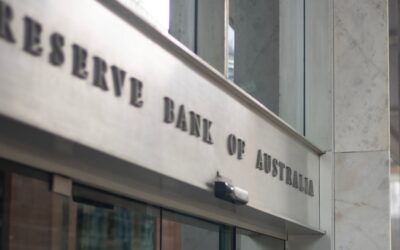In this article:

Inflation will very likely hit 7 per cent by the end of 2022, which means there’s more than a fair chance there will be further interest rate hikes passed on to you, the borrower, before the end of the year, as the RBA attempts to rein in spending in order to keep inflation in check.
This is not good news, but there’s no way the Reserve Bank could sit back and do nothing.
We’ve all benefited from cash rate lows of 0.1 per cent. But with it now at 1.85 per cent, a jump that has happened in just a few months, you can bet that there’s more to come.
As that rate is passed on to anyone who’s borrowed money and doesn’t have a fixed rate, what can you do to safeguard your investments and where should you place your cash?
- Think long-term, not short-term
If you have a thoughtful, long-term investment strategy, there’s no need to “chop and change” it just because interest rates are going up.
The worst mistake you can make as an investor is selling when the market has bottomed out or make rash decisions that could result in you missing out on potential returns. A lot of Australians who took the opportunity to withdraw money from their super funds when Covid first hit, missed out on one of the best years for super returns.
If you’re looking to invest for the next 10 to 20 years, it’s best to ride out the interest rate hikes that are coming our way.
That said, if you have a shorter-term “investment horizon”, maybe close to retiring, it may make sense to be more cautious and reduce your exposure to “riskier” assets such as shares.
- Build up your cash savings
Holding cash deposits in the bank as interest rates rise could be a safe option that will generate some income.
Having six to 12-month Term Deposits are a safe option for those with available funds, with some saving accounts offering higher rates if funds are deposited into them on a regular basis.
Be sure to shop around for the best deal as returns vary wildly between institutions. And before committing to a term deposit, it’s wise to consider your other investment objectives during the time the money will be locked away.
- Property
Although the property is more vulnerable to rising interest rates, some of these investments could benefit.
Rising inflation could be good news for property investors as it could lead to higher rents, which in turn could generate large enough returns to offset the negative effect of higher interest rates. Tight leasing markets and the prospect of higher yields and long-term capital gains should sustain interest in investment properties, despite rising interest rates.
With vacancy rates at an all-time low, now could be a good time to offset interest rate rises by buying more investment properties that will yield great cash flow.
As borders have opened up, we’ve seen an increase and influx of expatriates returning home. Add to this a drop in construction approvals and the government ramping up migration to assist the economy post-Covid – rents will continue increasing significantly in many locations over the next few years, helping to reduce the impact of the rate rises.
It pays to speak to a professional mortgage broker who can help make an assessment of your options with regards to repayments and future lending.
- The Share Market
Always a riskier proposition but potentially some of the highest returns.
Keep in mind that past performance is not a reliable indicator of future performance and great care is needed when making share selections.
Many people seek the assistance of an experienced investment adviser to do this for them.
- Bonds
Fixed income assets, such as government and corporate bonds are often seen as providing a relatively stable and reliable return.
When purchasing a government bond, you are essentially lending money to the government which they will pay you back with interest. The interest is paid to you in regular instalments throughout the length of the bond.
Fixed income assets could be considered boring by some investors but having them as part of your investment portfolio can help to offset any losses you may have had from the share market – hence their classification as a “defensive” asset.
… and a thin red line
All the things I’ve mentioned above are food for thought at one end of your balance sheet but don’t forget what’s going out at the other end.
My mum used to say, “Take care of your pennies and the pounds will take care of themselves”. Like most motherhood statements, this one is true and makes for good practice right now.
I’m making a list of those ongoing subscriptions I’ve picked up over the last few years and unnecessary money I’m spending in the cloud. It’s a leaner time now and I’m drawing a red line through those that I don’t need or can do without. I suggest you do the same. Make it a habit, not just something to do when times get tough.
There’s a famous Rudyard Kipling poem called If that begins with the words, “If you can keep your head when all about you are losing theirs …” Right now, it’s time to heed those words. Don’t lose your head, keep it sane, simple, and straightforward and you’ll come out the other side of this.
Article originally published by news.com.au, available here.



